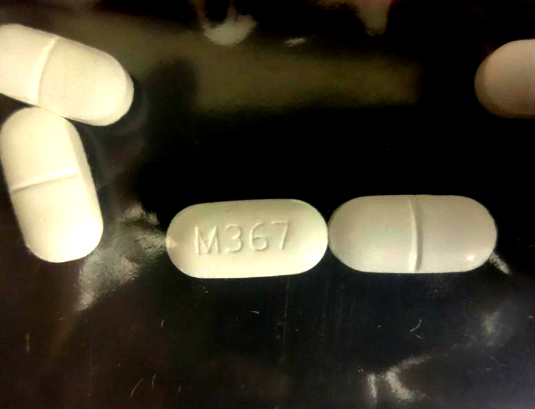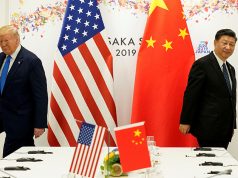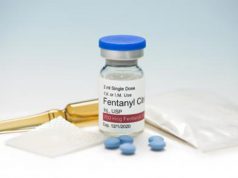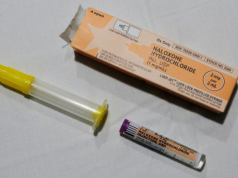
BEIJING — China’s drug control agency disputed on Friday U.S. President Donald Trump’s claim that most of the synthetic drug fentanyl at the heart of the U.S. opioid crisis was produced in China.
Declaring the crisis a public health emergency, U.S. President Donald Trump said last week he would discuss as a “top priority” stopping the “flood of cheap and deadly” fentanyl “manufactured in China” when he meets President Xi Jinping during his state visit to Beijing next week.
Wei Xiaojun, the deputy secretary-general of China’s National Narcotics Commission, said China did not “deny or reject” that some fentanyl produced in China had made its way to the United States.
But the “intelligence and information exchanged between China and the United States is not enough to say that most of the fentanyl or other opioid substances originate from China”, Wei said at a joint news briefing with the U.S. Drug Enforcement Administration (DEA) in Beijing.
Opioids include prescription painkillers, heroin and fentanyl, a highly addictive synthetic drug 50 to 100 times more potent than morphine.
The Centers for Disease Control estimated that 20,000 Americans were killed by fentanyl last year, surpassing common painkillers and heroin for the first time.
American law enforcement agencies and drug control experts say most of the fentanyl distributed in the United States, as well as precursor chemicals, originate from China.
While Chinese officials dispute these claims, Beijing has taken steps to crack down on the production and export of synthetic drugs, and has placed fentanyl and 22 other related compounds on its list of controlled substances.
It had done so even though fentanyl was not widely abused in China, Wei said, primarily in the spirit of cooperating with the United States and the broader international community.
China and the United States have increased cooperation on drug control in recent years and are holding a bilateral meeting on the issue this week. The DEA opened its second country office in southern Guangzhou in January.
Lance Ho, who heads the DEA’s Country Office in Beijing, said the cooperation between the two countries had generated good “momentum” and was focused on improving the real-time sharing of information.
“Once China controls a substance it has a dramatic effect on the United States in terms of lives saved,” Ho said.
The U.S. Department of Justice indicted two major Chinese drug traffickers last month on charges of making illegal versions of fentanyl and selling the highly addictive drug to Americans over the internet and through international mail.
Wei said it was “regrettable” that the United States decided to announce the case “unilaterally” because it would affect China’s ongoing investigations.






